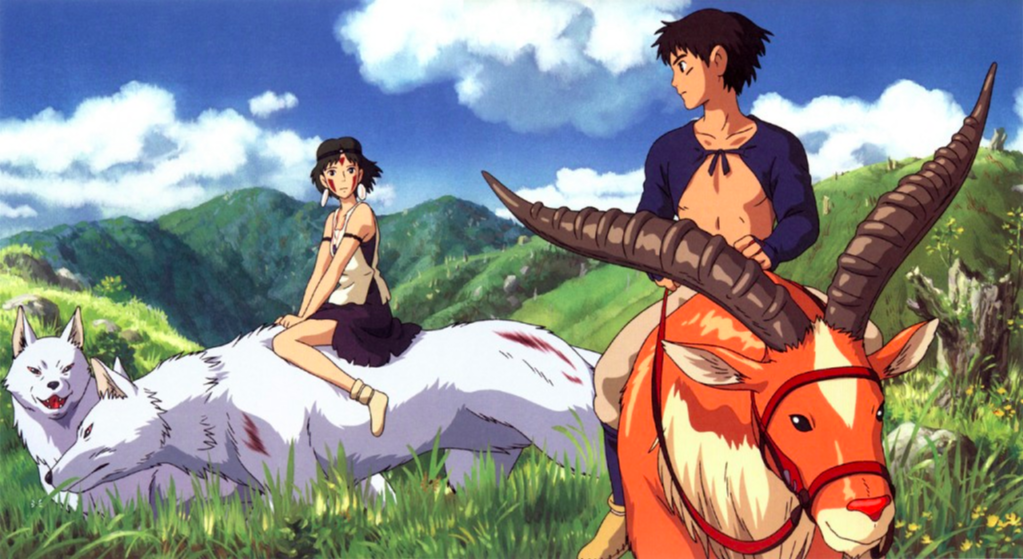Books: Miyazaki and the Hero’s Journey
April 26, 2022 · 0 comments
By Helen McCarthy.

A book can be a ground-breaking work of scholarship and still accessible to any intelligent reader. Language capable of being understood by the average well-read media fan is also capable of carrying the most challenging ideas. So, I’m always delighted to read new work that takes its subject and its readers more seriously than it takes itself, like Deborah Scally’s Miyazaki and the Hero’s Journey.

Academic writing on popular culture is changing as scholars consider how a work can most effectively carry its message without losing credibility. And when much academic publishing limits readership through pricing, it’s good to see the paperback of Deborah Scally’s book retailing for under thirty pounds. The ideas in the book first got an airing as early as 2008, when Scally presented a paper in Texas arguing that Miyazaki, like Tolkien before him, redefines the criteria for the heroic quest through the feminisation of male protagonists Ashitaka and Frodo, with both heroes incorporating eco-feminist principles in their struggles to attain their goals. Scally subsequently wrote her 2013 PhD on similar themes, exploring how Miyazaki balances the redemptive power of the female heroic quest with positive masculine attributes.
She starts her examination of Miyazaki’s films by referring to Joseph Campbell’s theory of the Hero’s Journey as monomyth, laid out in his book The Hero with A Thousand Faces. Campbell was a professor of literature whose influence on American screenwriting has been considerable, itself contributing to the marginalisation of women in visual mass media. In his original views – somewhat modified later, as Scally shows – woman didn’t need a hero’s journey of her own. It was enough for her to be the hero’s destination and reward.
Miyazaki’s films manifestly offer roles for women going beyond Campbell’s archetypes, which view women exclusively in relation and subordination to men. Scally therefore widens her lens to view other, more inclusive interpretations of heroism and the heroic quest.
Controversial Indologist Wendy Doniger O’Flaherty took issue with Campbell in his own day, arguing that the reduction of all myth into monomyth was short-sighted. Many female scholars agree. Looking at their responses to Campbell’s theory, Scally takes issue with the inner-centred “heroine’s journey” proposed by his former student, psychologist Maureen Murdock, feeling this does not go far enough to challenge biological determinism. She recognises the importance of Murdock’s inner quest for self-validation while preferring the strategies of later scholars and critics, such as feminist scholar Judith Butler, folklorist Valerie E. Frankel and former literature professor turned novelist Annis Pratt.

This is both an intelligent book and an eminently readable one. Scally considers Miyazaki’s feature films up to and including 2013’s The Wind Rises. She also includes the first two films by Miyazaki’s son Goro (who controversially and with no prior animation experience became a director at Studio Ghibli) and explores Miyazaki’s work prior to the foundation of the studio.
She ranges over popular culture, gender studies, psychology, politics, history, literature, geography and social science. Her chapter notes are clear and inclusive, assuming little or no foreknowledge of anime, fan culture or academia. Her bibliography is an incitement to browse, ranging from Carl Jung to Ursula K. Le Guin, Carol Adams to Ian Condry, The Little Mermaid to the Green Gospel. Her text is layered with a rich mix of references and examples: blogs, websites, cartoons and TV from America and Japan, articles from the popular press and academic journals, books aimed at many different readerships.

The book’s greatest success, even beyond its advocacy for the female hero (which you are probably not surprised to hear me endorse,) is to embed Miyazaki and Studio Ghibli, and by extension anime, firmly in its place as part of the structure of contemporary world culture. Women are slowly breaking down the walls that divide us from full humanity all over the world. Anime, forty years ago an art form so minor that few in the west could even pronounce or spell its name, is now recognised as a global creative force.
Dismantling gender restrictions around heroism has been historically difficult for scholars, partly of course because, like politicians, they have benefitted from gender and social inequity for centuries, but also because gender bias is so deeply embedded in the everyday institutions of many cultures that it is difficult to untangle it from our perceptions of normality and look at the world with unclouded eyes. In her final chapter, looking beyond Studio Ghibli and popular culture, Scally cites shifts in the old ideology, suggesting newer and more hopeful ways of seeing heroes and telling heroic stories without confining half of humanity to the sidelines, while forcing the other half onto the frontlines.
Helen McCarthy is the author of Hayao Miyazaki: Master of Japanese Animation. Miyazaki and the Hero’s Journey by Deborah Scally is published by McFarland.
Leave a Reply